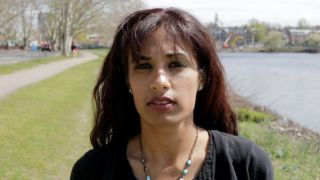 On June 22, 2016, Sahiyo’s cofounder, Mariya Taher came out on camera to discuss FGC in the United States and the work she has been doing to support other women and girls who are at-risk or who have undergone FGC and are living in this country. Her work into this area of gender violence began in 2008 when she started her Master of Social Work program at San Francisco University and decided to research FGC amongst immigrant communities living in the United States. Her motivation for pursuing this topic – she had undergone it herself at seven years old and understood the complexities involved with the practice. She understood that FGC was viewed as an obligatory social norm in the communities that practiced it and that it would be a challenge to help communities understand that this tradition was in fact, a form of gender violence, illegal in the United States, and against many existing human rights conventions. In 2015, she helped ABC news shed light on this practice by participating anonymously in their multimedia news piece, “Underground in America: Female Genital Mutilation”. The short video in the piece was subsequently nominated for a Webby Award in the category of Individual Short or Episode. Then in 2016, as the work of Sahiyo became more public and widespread, she showed her face on camera in the follow-up piece produced by ABC News, “Underground: Risk of FGM Increasing for Women in the U.S.”, says CDC.
On June 22, 2016, Sahiyo’s cofounder, Mariya Taher came out on camera to discuss FGC in the United States and the work she has been doing to support other women and girls who are at-risk or who have undergone FGC and are living in this country. Her work into this area of gender violence began in 2008 when she started her Master of Social Work program at San Francisco University and decided to research FGC amongst immigrant communities living in the United States. Her motivation for pursuing this topic – she had undergone it herself at seven years old and understood the complexities involved with the practice. She understood that FGC was viewed as an obligatory social norm in the communities that practiced it and that it would be a challenge to help communities understand that this tradition was in fact, a form of gender violence, illegal in the United States, and against many existing human rights conventions. In 2015, she helped ABC news shed light on this practice by participating anonymously in their multimedia news piece, “Underground in America: Female Genital Mutilation”. The short video in the piece was subsequently nominated for a Webby Award in the category of Individual Short or Episode. Then in 2016, as the work of Sahiyo became more public and widespread, she showed her face on camera in the follow-up piece produced by ABC News, “Underground: Risk of FGM Increasing for Women in the U.S.”, says CDC.
When asked why – “It took me eight years to decide to reveal my face on camera. I had researched and written about FGC in print for years, but revealing your face on camera is very different. It meant my personal life and professional life were enmeshing and I knew it also meant that my family could be on the receiving end of backlash from their religious community, and from others who did not understand the complexities of power and control when it comes to gender violence. I also understood that not everyone is able to come out and publicly speak out against it and there are many reasons that range from fear, concern for friends and family members, legal reasons, not wanting to be viewed as a victim, and more. They are all valid reasons. I had taken many years to work through all of the potential unintended consequences of speaking openly, and I knew that I had finally reached a place where I could be a support for others, and because I am a social worker, I had the knowledge and background of working in social services to understand how to go about creating them for women and girls at risk for or who had undergone FGC. This is what I hope to do and this is why I revealed my face on camera.
